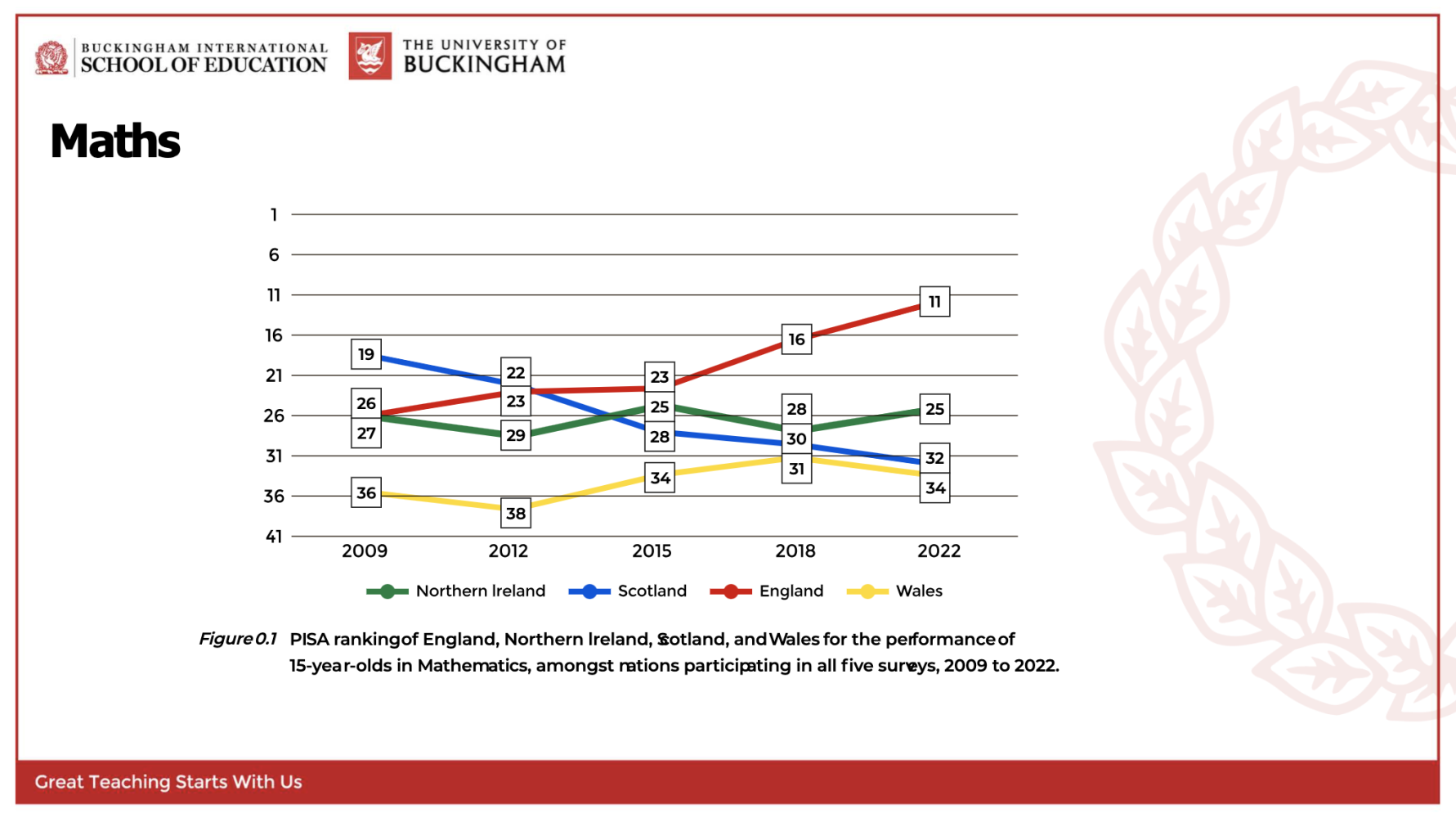At the University of Buckingham and Buckingham International School of Education’s Annual Reception in Beijing, Professor Barnaby Lenon examined a question that educators across the world continue to grapple with:
What makes a good teacher — and how can these traits be cultivated?
His compelling keynote lecture did not offer a quick fix, but drew on years of school leadership, real classroom practice, and a growing international research base to offer concrete solutions.
Good Teaching Is a Professional Practice
Professor Lenon emphasised that effective teaching is not a matter of personality.
It is built on trainable, repeatable techniques, including:
- maintaining high expectations
- strong subject knowledge
- delivering clear, direct instruction
- effective behaviour management, and
- regular testing and catch-up systems.
These are professional skills, not personal traits — and they can be taught, coached, and refined across a teacher’s career.
What England’s Reforms Reveal
Professor Lenon presented PISA ranking data from 2009 to 2022 across England, Northern Ireland, Wales, and Scotland.
During this period, England’s ranking in reading and mathematics rose notably, while the other UK nations did not show the same pattern of improvement.

This upward trend reflects more than a decade of coherent, classroom-focused reforms, centred on:
- systematic synthetic phonics for early reading
- mastery-style mathematics modelled on Singapore
- teacher-led instruction with regular check-ins
- knowledge-rich curricula
- regular low-stakes assessment to strengthen long-term memory
Rather than reorganising school structures, England focused on how teachers teach — and the results speak for themselves.
It is no surprise that educators across Asia and around the world are paying close attention to these developments.
England’s experience demonstrates that long-term, evidence-informed teaching practice can shift outcomes at a national scale.
Learning from High-Performing Schools
Professor Lenon also highlighted Michaela Community School as an example of what can happen when research-aligned teaching is applied consistently:
- direct instruction
- demanding, content-rich lessons
- school-written textbooks
- rapid intervention for pupils who fall behind
Year after year, Michaela achieves some of the highest value-added scores in England — prompting an important question:
Is exceptional teaching the product of exceptional teachers, or of an exceptional system?
The answer may lie in both.
Seven Characteristics of Strong Teachers
The lecture was drawn from Professor Lenon’s new book, co-researched and written by Tracey Smith, also of the University of Buckingham, which outlines seven characteristics frequently found in highly effective secondary-school teachers.
The characteristics were chosen based on:
- decades of observation
- insights from research conducted by the EEF, John Hattie, and the OECD
- lessons from high-performing schools
To access the full keynote speech and the complete framework, request the link here.
Submit the form to receive the full lecture.